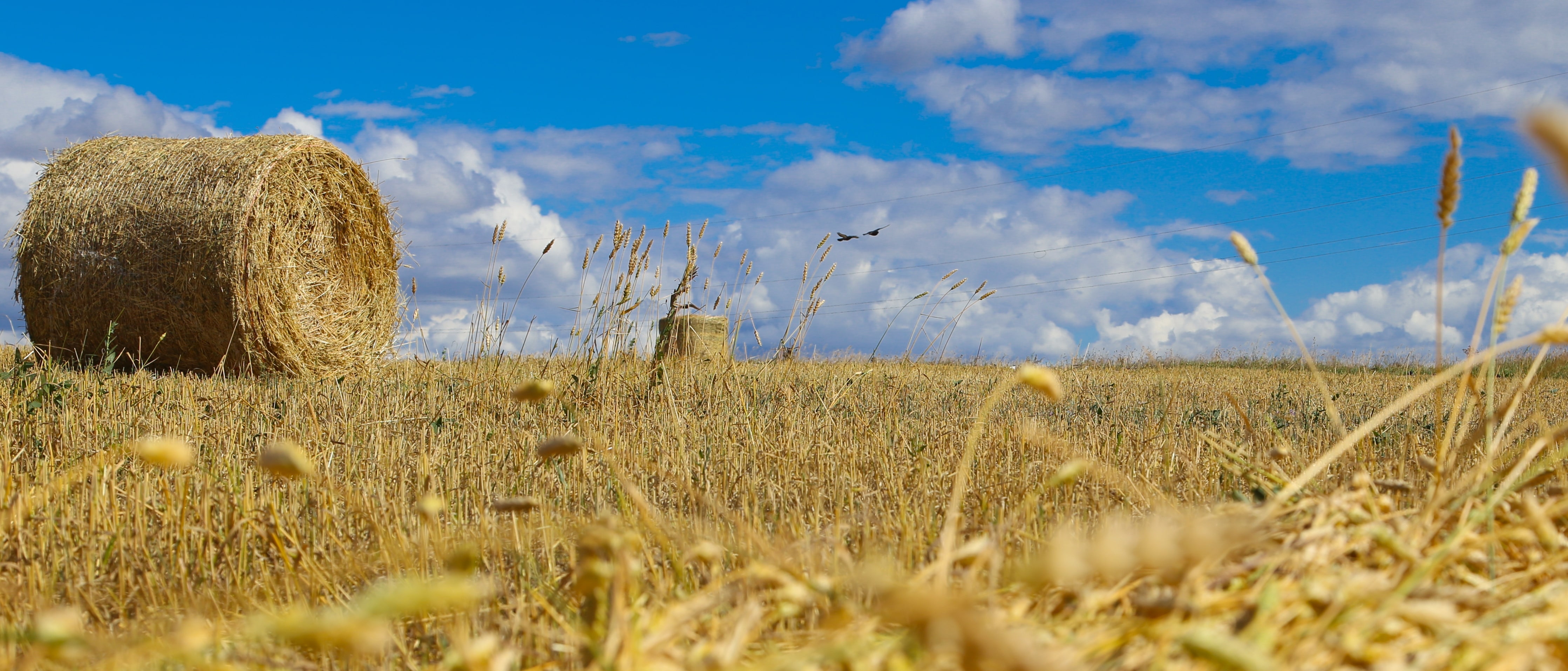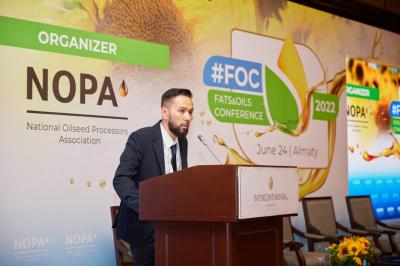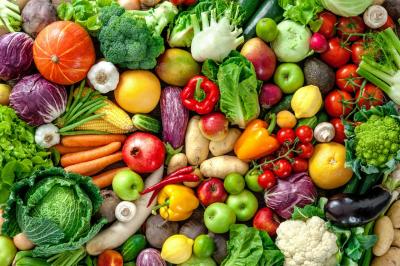
Agriculture has been and remains the cornerstone for the economy of Kazakhstan, which stays at its base and smooths global market shocks, as appropriate.
Whatever the situation on the oil market turns out, whatever the exchange rate of the dollar or other currencies will be, whatever the level of GDP will have be formed at the end of the year, Kazakhstan will definitely sow wheat, harvest it, saturate the domestic market and export the surplus.
The same mechanism works for all other agricultural products, either chilled beef or vegetables. Obviously, where we do not have import dependency. Unfortunately, our economy simply will not survive without this.
Kazakhstan cannot yet boast of a high technology economy that exports innovations, IT services and high value-added products, such as cars or computers, instead of raw materials. There is not much hope for oil either, it hardly save the economy of Kazakhstan after 50 years, or maybe even less, considering the global trend of transition to "green" technology.
It follows a simple conclusion Kazakhstan needs to bring agriculture to a new level of development in the coming decades in order not simply to stay afloat, but also to develop. Only the agro-industrial complex is able to "quickly move" the country's economy forward, having the necessary explosive potential for development.
In addition, solving the problems of agricultural development, we also solve social problems: affordable and quality food, employment, modern infrastructure and communications.
We decided to think over what steps should be taken to move the domestic agro-industrial complex to a qualitatively new level of development.
Increasing the availability of financial resources
Kazakh farmers are not the first year declare about catastrophically shortage of working capital, and this is happening despite the fact that the state annually sends significant money to support the agricultural sector.
The reason for this paradox is the structure of our banking system, or rather the relationship "bank and farmer" or "operator of the development program and farmer”. In other words, today in order to receive financing, we need to provide sufficient liquid pledge, which not every peasant farm can provide, not to mention individual farmers.
The standard situation is as follows: a peasant farm has equipment and land, matured experience, but every year the management does not have enough working capital to buy better seeds and fertilizers, to carry out all the agricultural work in the required amount. In this regard, farmers are forced to simplify production technology, and this leads to the fact that for many years Kazakhstan keep the same indicators of yield as 9-10 centners per hectare.
Also the situation with development loans is not better. Today it is more profitable for banks to buy government bonds or other securities, providing themselves a small but stable yield, instead of lending to the real sector of the economy.
At the same time, it should be noted that there are certain positive steps in this direction. Thus, this year voluntary insurance was introduced in the agricultural sector, which many market players have been achieving for many years. The main thing is that insurance policy can become a real collateral instrument when obtaining credit funds.
Besides, it is necessary to think over how properly guide banks to finance the real sector, making this direction more attractive for them.
To sum up, the issue of financing should be put at the forefront when considering drastic measures to support agriculture. It will be easier to solve the rest of the problems by completing this issue.
Implementation of scientific developments and advanced technologies
Digitalization is a global trend. Today it concerns almost all spheres of human life. At the same time, the application of technological developments in agriculture gives the most tangible practical result: the productivity of peasant farms, the quality of production, the income of farmers are increasing.
The government has also recently become more active in this area. Thus, in the framework of the President's instruction, extension centers will be established in the regions and permanent consulting centers will be organized. In addition, funding for agrarian science in general will be significantly increased.
Undoubtedly, these are positive steps, but, in our opinion, implementation of advanced scientific developments and technologies in the agricultural sector requires even more thorough and systematic approach.
The work of a single operator in this direction, which is currently NASEC, should be even more "aggressive". Today, there is a strong feeling that this sphere has been stuck, clumsy and heavy, lacks some kind of structure and consistency. Perhaps, the appointment of a new head of NASEC will give an impulse to this work, only time will tell it.
Moreover, the media component is extremely important in this sphere, which should bring the light of technological solutions to the people. Farmers from North Kazakhstan region to Zhambyl region should be aware of what trends are gaining momentum in global agriculture today, which crops and how to choose it to get the maximum yield. What developments of local scientists can help to achieve the highest productivity, etc.
Mechanization
Considering the fact that agriculture is a very labor-intensive industry, the use of advanced equipment and mechanisms are a fundamental condition for development.
Obviously that the level of renewal of the domestic park of agricultural machinery at present leaves much to be desired, and there are regularly arise all possible upheavals in this area: from the devaluation of tenge, which inevitably leads to higher prices for equipment, to the utilization fee, which has been discussed a lot lately, so do not go into details.
The sufficient technical equipment, combined with the introduction of scientific developments and increased funding can transform domestic agriculture quickly and dramatically. That is the reason to pay close attention to this area: to improve the tools to support farmers in the purchase of agricultural machinery, remove "man-made" hurdles and barriers for technical renewals, and to develop service.
Stable sales
It is possible to get real production and quality growth relatively quickly by pouring money into agriculture and providing farmers with modern machinery and knowledge. At the same time, all these efforts may be in vain without stable sales, because one of the main laws of the economy is that where there is overproduction, prices are inevitably decline or at least they do not increase.
Kazakhstan today remains a partially import dependent country in terms of food, but as the Ministry of Agriculture predicts that this situation will change in the coming years. Therefore, it is necessary to think about support and development of exports in order to avoid problems with sales, in addition to saturation of the domestic market.
Kazakhstan is limited in the choice of sales markets, because our country has no access to the World Ocean. Therefore, the opening of new countries for us is always based on the cost of logistics. Despite this, we can concentrate our efforts on expanding presence in our traditional markets, as well as opening new but not very far from us.
To achieve this, we need to improve product quality and reduce production costs, which are included in the final cost. These are just the parameters that follow from the previous paragraphs of this article.
In this case, the important points are diversification of areas under crops, and the development of production of extremely popular today eco-products, and the creation of high-quality, as well as more expensive products of processing agricultural raw materials.
Simplification of administrative procedures
Time is as valuable for farmers as water and land. This factor can sometimes play a decisive role in production, so the simpler the procedures that take place in agricultural sector (loans, leasing, subsidies, forward contracts), the better.
Our country is successfully working to optimize and accelerate by delivering of public services. The agricultural sector also requires close attention in this regard. If operations with documents are carrying out quickly, it means that all further work speeds up, and unreasonable delays are not arise. In general, it is always possible to strive for the best in this direction.
Kazakhstan agro-industrial complex needs focused attention
Today, agriculture in Kazakhstan can be compared with an ultramodern combine, which has great potential, but most of the time stands idle, because the farmer has no money to fuel it, no knowledge to manage it, do not have vision of its direction.
In our opinion, there have been some really productive and useful steps recently in the agro-industrial sector, but there is always something missing in the industry to get on the trajectory of rapid and sustainable growth.
This feels like sometimes there is not consistency and coherence in the implementation of certain measures, that many fundamental problems impeding the development of the industry do not solved radically.
At the same time, a conceptually new National Project for the development of the domestic agro-industrial complex for the next five years is currently under development. Potentially, this project may give a serious impetus to the development of the industry, and the main thing is that it should include the support measures, which are necessary for the agriculture today.












































Обсуждение